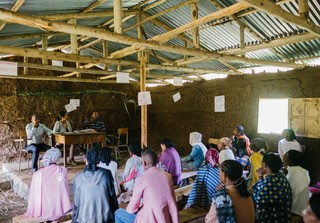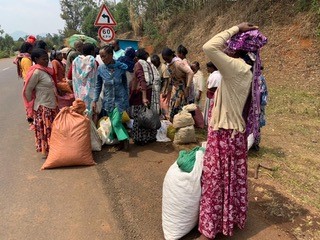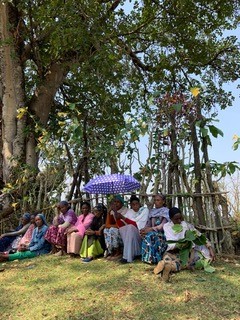Through an integrated value chain approach, our project will create meaningful employment opportunities for 2,000+ agroforestry practising smallholder farmers across three biosphere reserves, with a majority female youth population, reaching an additional 4,000 smallholder farming communities.
The Problem
Despite rapid growth year on year in Ethiopia manufacturing, the sector’s overall economic contribution is just ~7% of GDP. The current political and economic crises in the country leaves fewer opportunities for large-scale foreign investments. The key challenges facing this industry and the target demographic are threefold:
1. Opaque and Volatile supply chains
Such supply chains cut out smallholder farmers from getting their fair share, with multiple traders and intermediaries taking a larger cut.
2. Gender inequity
Ethiopia is ranked 134th of 156 countries on wage inequality globally. This is even greater in rural farming populations where despite contributing to 70% of labor, this inequity still equists.
3. Ecosystem damage
Climate change, deforestation and the loss of biodiversity increasingly destroy and reduce alternative economic livelihood opportunities. The ecosystem rural communities depend on requre safeguarded from a changing climate that is affecting rainfall, harvest times and creating unpredictable agroecology conditions adding more pressure on their ability to have resilient livelihoods. With 3% deforestation rates in Ethiopia as a result of timber and other activities, it is important to reverse this trend and create viable opportunities in non-timber forest production systems.
The Solution
Our project uses the theory of change that forest-based conservation, with an integrated sourcing to market strategy, creates meaningful and quality job opportunities for thousands of smallholder farming communities.
Our model can be sustained through the direct engagement of smallholder farming communities to gain stable and diversified wages on the one hand, and creating new income streams from non-timber forest products and the conservation-based use of indigenous and biodiverse plants on the other. At least 2,000 agroforestry practising smallholder farming communities, 60% female and at least 50% youth, would be directly engaged, unlocking reach to an additional 4,000 communities. This approach will have scalability and replicability for other private sector actors to follow.
Our three activity areas include:
- building capacity and engagement for 2,000 majority youth and female agroforestry practising communities
- securing access to speciality and niche export markets for Ethiopian natural ingredients
- building processing capacity at the smallholder level
Across the entire project and target demographic, Tchakka Origins is committed to a majority of female youth targeting, first because the Tchakka Origins team is founded and led by a majority female team. Second, the Tchakka Origins human resourcing, supplier and other network are designed to prioritize female entrepreneurs and businesses, and to create circular economies amongst female owners and workers. To this end, more than 50% of the 2,000 employment opportunities for this project will be designed around female youth groups, taking into consideration their needs for consistent engagement, particularly in rural settings where the socio-cultural dynamics are not in their favor.
Additionality
Without this funding, Tchakka Origins would not be able to scale its employment and impact driven model, and would instead be forced to source from the usual traders who are not able to create nor sustain opportunities for collective growth in sustainable value chains. This unlocks the scalability for conservation-based and climate-positive employment creation for over 6,000 agroforestry communities across Ethiopia.


